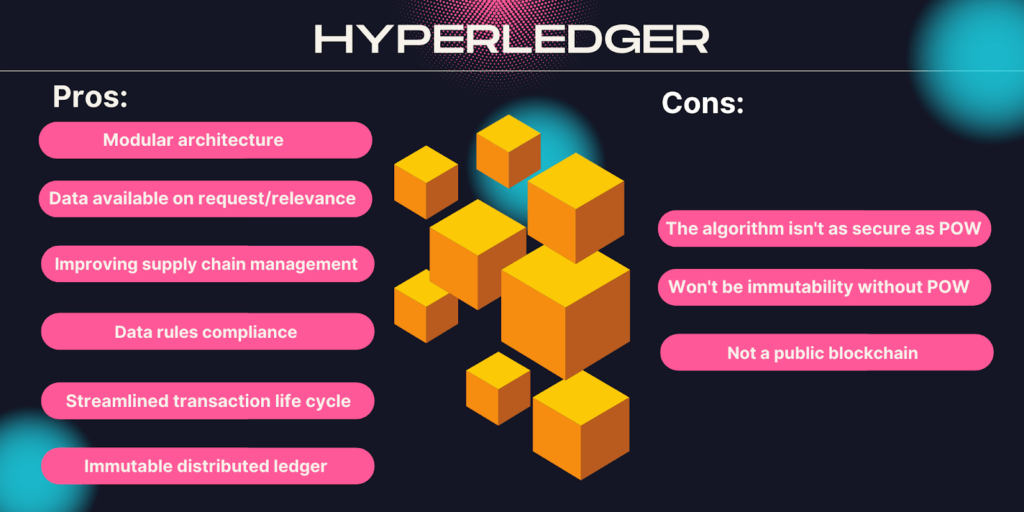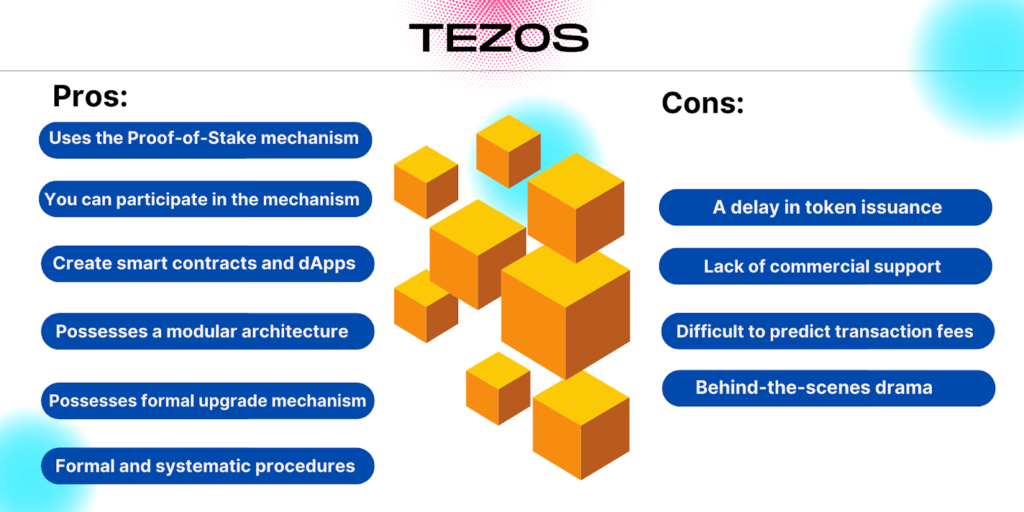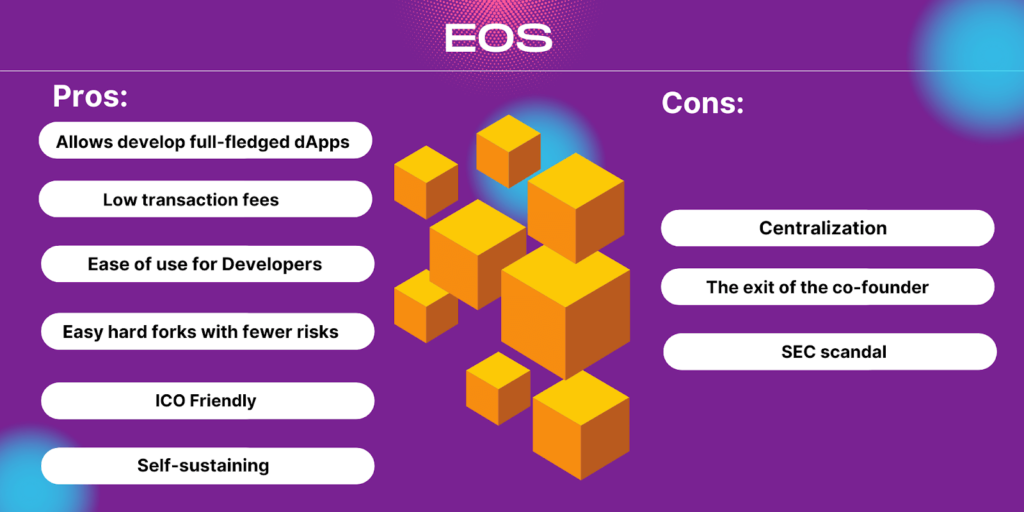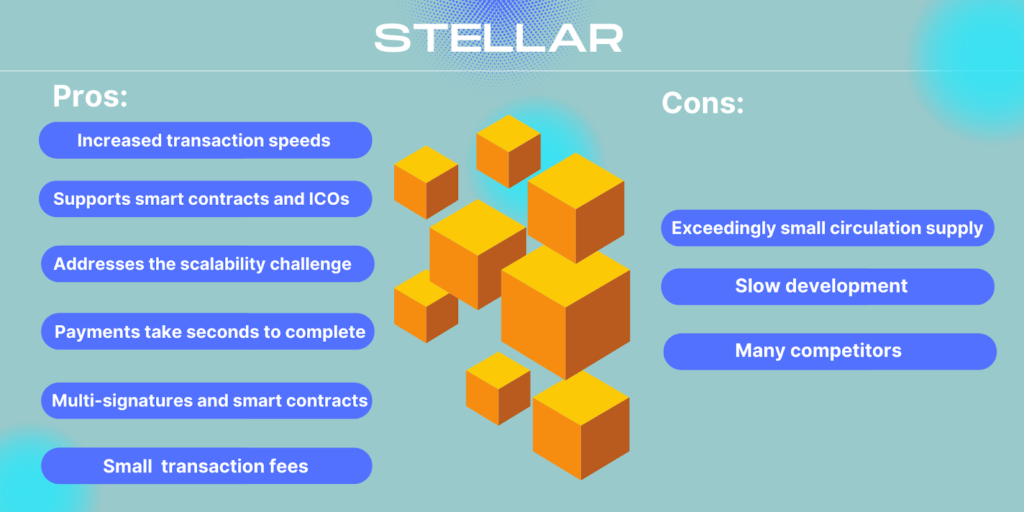August 5, 2022
How To Choose the Best Smart Contract Platform in 2022?
Table of content
2022 is suggested to be a banner year for the crypto world and smart contracts. Smart contracts refer to small bits of self-executing code that are placed on the blockchain and help in the development of decentralized applications (dApps for short). Smart contracts have been used for years already, but today they lay the base of all of this year’s hottest themes, starting from the NFT marketplace and metaverse to decentralized finance (Defi) and Web3 applications.
Currently, the market offers several smart contract platforms. Since smart contract platforms are required for building decentralized apps, developers always struggle with choosing the right one for their large projects. The competition in this field is extremely high, so any severe technical defect or poor security may even eliminate some of them within minutes. The uniqueness of smart contracts is that some of them can be formalized and work automatically without the need of a third party.
While smart contract platforms are still in their development stage, experts expect massive use in various industries in the upcoming years caused by global digitalization. Statista report shows that the global blockchain technology revenue will experience massive growth in upcoming years, while the market revenue is suggested to climb to over 39 billion U.S. dollars in size by 2025. This is because more and more businesses are considering using smart contracts and building blockchain apps.
But why are they all so excited about smart contracts, and what are the differences between all of these platforms? This article will answer your questions and let you explore a list of smart contract platforms in 2022 that are worth attention.

What are Smart Contract Platforms?
Just like any other contract, smart contracts show agreement terms or deals. The thing that makes smart contracts “smart” is that all the terms are established and executed as code placed on a blockchain instead of paper on a desk. Smart contracts are designed to expand the goal of Bitcoin sending and receiving digital assets without the need of a “trusted intermediary” like a financial organization. This makes it possible to safely automate and decentralize any kind of deal or transaction that happens online, regardless of complexity.
They also run on blockchain like Ethereum, therefore providing secure, reliable, and borderless accessibility. A smart contract platform represents a framework needed to build decentralized applications, also known as dApps. To put it simply, smart contract platforms work like an operating system, although instead of apps running on the operating system, the blockchain ledger and its smart contracts act as the operating system (OS) with an underlying framework. Smart contracts are the essential blocks allowing the establishment of their next-generation descendants that offer decentralized control.
How do Smart Contracts Work?
All parties should first determine the terms of the smart contract. Once the terms are established, they are translated into code. This programming code represents a number of various conditional statements that describe all possible scenarios of a suggested transaction.
When developers finish the contract, it is placed and stored in the blockchain ledger and is replicated within the parties in the blockchain. After this, the code is ready and can be run and executed by all computers in the blockchain network. When the terms of the contract are approved and satisfied by all participants of the blockchain network, the relevant transaction happens and is recorded on the blockchain.
Top Smart Contract Platforms of 2022
Ethereum is obviously the most popular smart contract platform for the development of dApps; there are many alternatives that you should know now. Ethereum loses its popularity due to immensely high gas fees, so let’s get a look at top smart contract platforms in 2022:
1. Hyperledger
Hyperledger is currently one of the most popular smart contract platforms, which has been developed by the Linux Foundation. This blockchain has an authorized nature, meaning that participants’ identities are known, and authentication is required. This makes a Hyperledger smart contract platform especially appealing to businesses that work with sensitive data, so they should be compliant with data protection guidelines such as GDPR.
It’s worth noting that Hyperledger is well-recognized for its trust, secrecy, and security at the forefront. Participants are able to construct secret channels for specific network members, which allows only selected members to view the specific transaction data. In addition, Hyperledger offers the highest cybersecurity level thanks to an extra hardware-based security model which helps in identity management.
Pros:
- Modular architecture.
- Improving supply chain management.
- Streamlined transaction life cycle.
- Streamlined transaction life cycle.
- Data is available on request/relevance.
- Data rules compliance.
- An immutable distributed ledger that supports rich queries.
Cons:
- Fabric is permissioned so it is not a public blockchain
- The consensus algorithm in Fabric isn’t as secure as POW.
- There won’t be real immutability without POW.

2. Tezos
Another alternative to Etherium is Tezos, which will take second place in the list of top smart contract development platforms in 2022. This smart contract platform was established in 2017 by Arthur Breitman, who made this platform following the goal of developing a blockchain that will eliminate first-generation blockchain concerns like protocol splits.
For instance, one of the key causes of several forks of Bitcoin has several forks, is the fact that stakeholders cannot agree on specific protocol improvements and have chosen to develop a new chain.
This is where Tezos comes into the picture and combines on-chain administration with self-amendments which prevents hard forks. This means teams can quickly modify protocols if stakeholders approve the developer’s modification. In addition, developers contributing to the platform allow the platform to expand naturally.
Developers also like Tezos as it provides distributed consensus through the Proof of Stake method instead of relying on the Proof of Work approach. Therefore, the platform employs delegates over miners, who usually consume excessive amounts of electricity to make a new block to the chain.
Pros:
- Uses the Proof-of-Stake consensus mechanism.
- Stakeholders can participate in the consensus mechanism and get rewards for contributing to the security of the network.
- Allows blockchain developers to create smart contracts and develop dApps. Tezos claims to provide safety and code correctness.
- Possesses a modular architecture and formal upgrade mechanism.
- Offers formal and systematic procedures for stakeholders.
Cons:
- A delay in token issuance caused several users to miss out on their rewards without being informed.
- Lack of commercial support with Tezos.
- It is an immature network as it is difficult to predict what its transaction fees are.
- Tezos has dealt with behind-the-scenes drama.

3. EOS
EOS, which has long been considered the best smart contract platform, will retain its position in the list of top smart contract platforms in 2022. Within a few months after being launched, it has already drawn lots of attention from the development community.
Since it had near-zero transaction fees and was able to handle many transactions in a second, EOS was always considered the most promising alternative to Etherium. EOS is also a cryptocurrency designed for large-scale applications which also does not have any costs related to sending or receiving EOS. To be more specific, the protocol always pays those businesses that administer the network with additional EOS.
Pros:
- Offers the ability to develop full-fledged dApps.
- Low transaction fees.
- Governance.
- Ease of use for Developers.
- Easy hard forks with fewer risks.
- ICO Friendly.
- Self-sustaining.
Cons:
- Centralization.
- The exit of the co-founder.
- SEC scandal.

4. Stellar
Stellar was founded by Jed McCaleb, who is also listed as one of the Ripple creators. This is the only smart contract platform in the list that is not Turing complete. To put it simply, it is only suitable for basic smart contract use cases like ICOs or simple escrow contracts.
This limit makes Stellar one of the greatest money exchange platforms in the top smart contract platforms list. This platform also outperforms every other in terms of speed of transactions, cost-effectiveness, and protection.
Unlike Ethereum and Tezos, Stellar does not have its own smart contract language. In addition, developers can create smart contracts on Stellar using any of the most common programming languages. This makes Stellar highly accessible to a large number of engineers.
Smart contracts developed on Stellar are linked and performed using a variety of restrictions such as multi-signature, batching, time limits, and so on. Stellar will be an excellent option for any organization looking for a simple yet efficient smart contract solution.
Pros:
- Increased transaction speeds as a result of a shortened approval cycle.
- Supports smart contracts and ICOs.
- Addresses the scalability challenge and processes thousands of transactions per second.
- Some payments take seconds to complete.
- Small, almost unnoticeable transaction fees.
- Allow multi-signatures and smart contracts.
Cons:
- Offers an exceedingly small circulation supply currently.
- Slow development and only a small number of Lumens can be released, or there is a risk of volatility.
- Many competitors.

How to Choose the Best Smart Contract Platform?
Since blockchain and smart contract app development is still in its early stages, there is a high degree of confusion regarding which one to choose. This is why most organizations and businesses choose a smart contract platform based on specific goals they follow, reputacy, and trust the platform has in the market.
Even though Ethereum is an ultimate choice for most, its high gas fees make it less appealing to the modern organization. This list above will help you explore its efficient competitors where each one offers its own benefits and cons that you should explore.
However, it will be easier for you to choose the best smart contract platform for you, depending on the goal of a trusted company that offers cryptocurrency development services.
How Can Interexy Help?
Given the fact that Interexy is on the list of top Dubai and Miami blockchain development companies, our clients know we always provide the highest quality in the market combined with high-speed and custom solutions. Since every project is unique, we provide developers with relevant experience and specific skill sets for every client.
We offer consulting, development, and support services in the blockchain and smart contract fields. Our blockchain development services always differ with specialized resources, vast networks we partner with for some projects (like Sandbox), and transparency in every step of the process.

Final Thoughts
Choosing smart contract platforms is a tough question for most organizations today. While Ethereum has always been a great solution, we now see many arrivals who might offer even higher functionality, fewer gas fees, and speed. So if you want to choose what smart contract platform is best for you, read this guide or book a call with our experts to get detailed information based on your requirements!
FAQs
What are smart contracts?
Smart contracts refer to simple programs placed on a blockchain that run when predetermined conditions are met and verified.
What are the common use cases of smart contracts?
The most common uses of smart contracts are copyright, data marketplace, NFT, financial data recording, insurance, and supply chain management.
What is blockchain, and how does it relate to smart contracts?
Blockchain is a decentralized network of databases that can be shared across the entire network of computer systems. Whenever anyone develops smart contracts and places them into a specific blockchain, they are stored in the network.
















